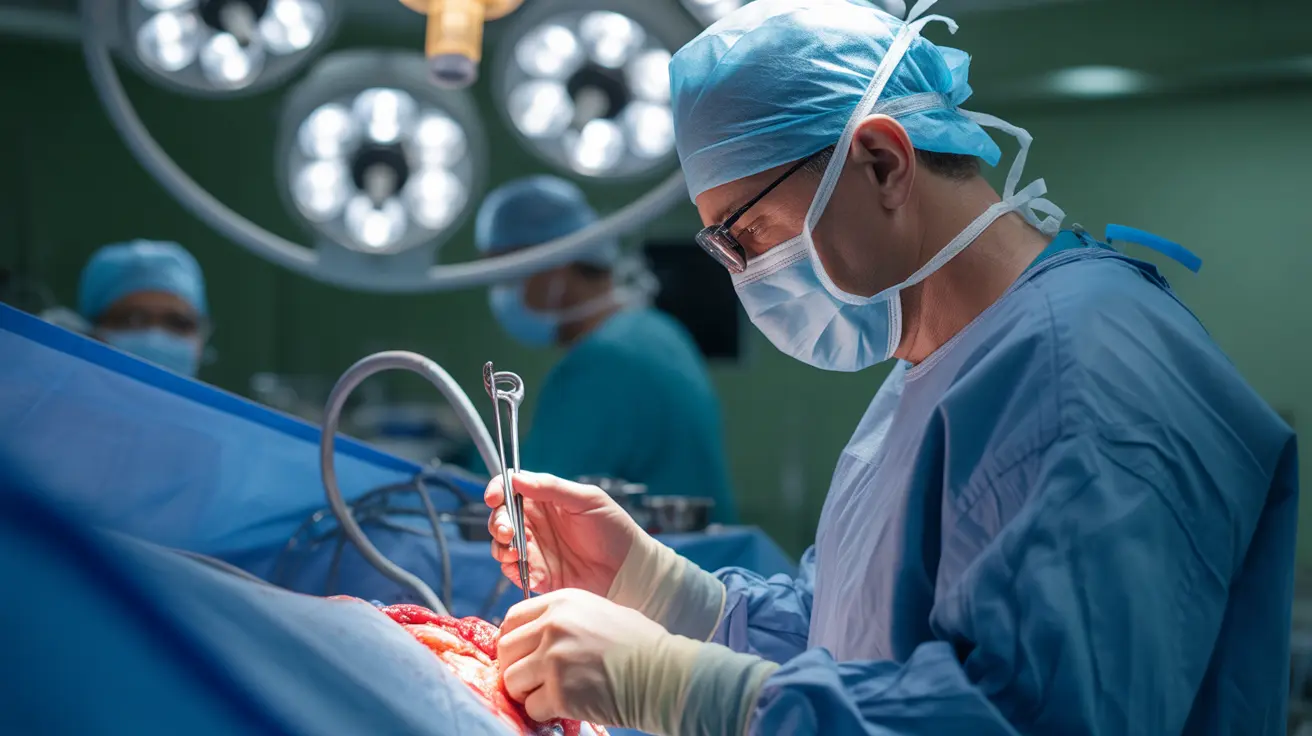Crohn's disease can significantly impact quality of life, and while medication is often the first line of treatment, surgery may become necessary for some patients. Understanding the various surgical procedures, recovery process, and long-term outlook can help you make informed decisions about your treatment journey.
This comprehensive guide explores the different types of surgical interventions available for Crohn's disease, what to expect during recovery, and important considerations for post-operative care.
Common Types of Crohn's Disease Surgery
Several surgical procedures are available for treating Crohn's disease, each designed to address specific complications and symptoms:
Strictureplasty
This procedure widens narrowed sections of the intestine without removing any tissue. It's particularly useful when multiple areas are affected, helping preserve intestinal length and function.
Bowel Resection
During this procedure, surgeons remove damaged sections of the intestine and reconnect the healthy portions. This is one of the most common surgical interventions for Crohn's disease patients.
Fistula Repair
This surgery addresses abnormal connections between organs or tissues, helping prevent infections and other complications associated with fistulas.
Recovery Timeline and Post-Surgery Care
Recovery from Crohn's disease surgery varies depending on the procedure type and individual factors. Most patients can expect:
- Initial hospital stay: 4-7 days
- Limited activity period: 2-4 weeks
- Full recovery: 6-8 weeks
During recovery, patients typically progress from clear liquids to solid foods gradually, with close monitoring by their healthcare team.
Managing Surgical Risks and Complications
While surgical procedures for Crohn's disease are generally safe, understanding potential risks is crucial:
- Infection at the surgical site
- Bleeding
- Bowel obstruction
- Anastomotic leak
- Temporary bowel function changes
Your surgical team will implement specific measures to minimize these risks and monitor your recovery closely.
Living with an Ostomy
Some patients may require a temporary or permanent ostomy after surgery. Modern ostomy care has advanced significantly, allowing most people to maintain an active, fulfilling lifestyle. Support groups and specialized nurses can provide valuable guidance for adapting to life with an ostomy.
Post-Surgery Disease Management
Following surgery, ongoing medical management is essential to prevent disease recurrence. This typically involves:
- Regular follow-up appointments
- Medication adherence
- Dietary modifications
- Lifestyle adjustments
- Regular monitoring for signs of recurrence
Frequently Asked Questions
What are the most common types of surgery for Crohn's disease, and how do doctors decide which procedure to use? Doctors consider factors like disease location, severity, and complications when choosing between procedures such as strictureplasty, bowel resection, or fistula repair. The decision is based on preserving bowel function while addressing specific symptoms and complications.
How long does it take to recover from Crohn's disease surgery, and when can I return to normal activities? Most patients spend 4-7 days in the hospital and require 6-8 weeks for full recovery. Return to normal activities is gradual, with light activities possible after 2-4 weeks, depending on the procedure and individual healing progress.
What are the main risks and possible complications after surgery for Crohn's disease? Main risks include infection, bleeding, bowel obstruction, and anastomotic leaks. While these complications are possible, modern surgical techniques and careful post-operative care help minimize these risks.
Will I need an ostomy bag after Crohn's disease surgery, and is it permanent? Not all patients require an ostomy. When needed, it may be temporary or permanent, depending on the extent of disease and type of surgery performed. Many patients with temporary ostomies can have them reversed after healing.
Can Crohn's disease come back after surgery, and what kind of follow-up care is needed? Yes, Crohn's disease can recur after surgery. Regular follow-up care, medication compliance, and lifestyle modifications are essential to minimize recurrence risk. Your healthcare team will schedule regular check-ups and monitoring to detect and address any signs of recurrence early.




